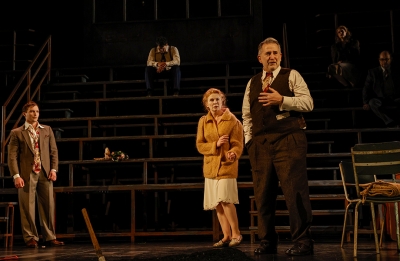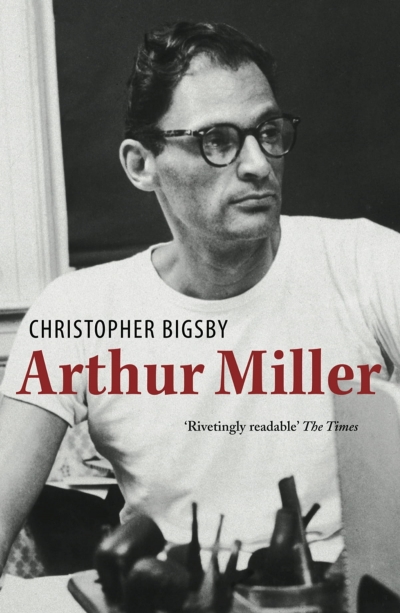Arthur Miller
In his survey of the notebook Arthur Miller kept while writing Death of a Salesman, John Lahr, in Arthur Miller: American witness (2022), relates that early in its composition Miller considered calling the play ‘The Inside of His Head’. Correspondingly, Miller envisioned the stage ‘designed in the shape of a head, with the action taking place inside it’.
... (read more)Since its première in 1949, Arthur Miller’s Death of a Salesman has managed to cling to cultural relevance with a vice-like grip. In 1975, New York Times critic Walter Goodman saw in its evocation of the American middle class the perfect representation of a nation-wide recession following the Vietnam War. In 1984, the play’s titular salesman, Willy Loman, became the symbol of a dwindling middle class under Ronald Reagan. And in Mike Nichol’s 2012 Broadway revival, Charles Isherwood transformed Loman into the perfect everyman for the Great Recession. That same year, Simon Stone staged an innovative adaptation of Miller’s masterpiece for Sydney’s Belvoir Theatre. It was Stone’s decision to have his actors speak in Australian accents rather than the conventional Brooklyn dialect that seemed to pry the play from its American origins.
... (read more)In his program notes, Kip Williams, artistic director of Sydney Theatre Company, talks about the need to ‘wrestle’ Arthur Miller’s great play ‘into the present’. But if ever there was a play that speaks, as the Quakers would say, directly to us in our condition, it is this one. When Miller wrote it, he assumed that the postwar boom would not last and that America would head back into another depression. In fact, the boom continued, and for the next thirty years the United States, albeit hesitantly, moved past the horrors of McCarthyism, Vietnam, and the brutal resistance of the south to the Civil Rights Act towards a more just and equitable society. But the election of Ronald Reagan and the last forty years of triumphant, unrestrained capitalism have led us to the Trumpian world where people are either winners or losers and are, in the gig economy, to paraphrase Willy Loman, eaten like an orange and thrown away like the peel. Miller’s play is a reminder that being human, in his words, ‘is something most of us fail at most of the time and a little mercy is eminently in order given the societies we live in’.
... (read more)



